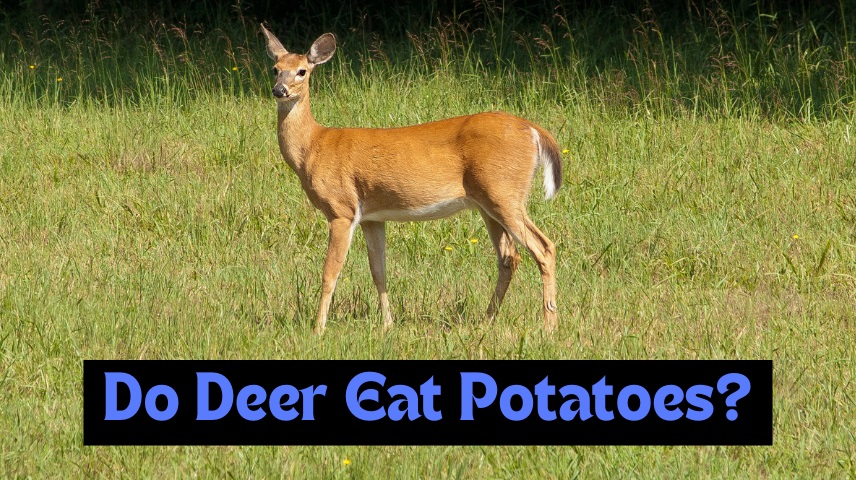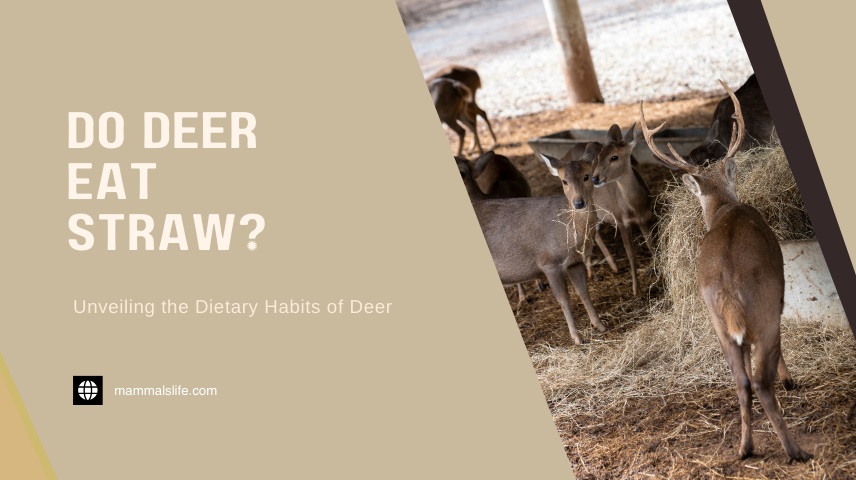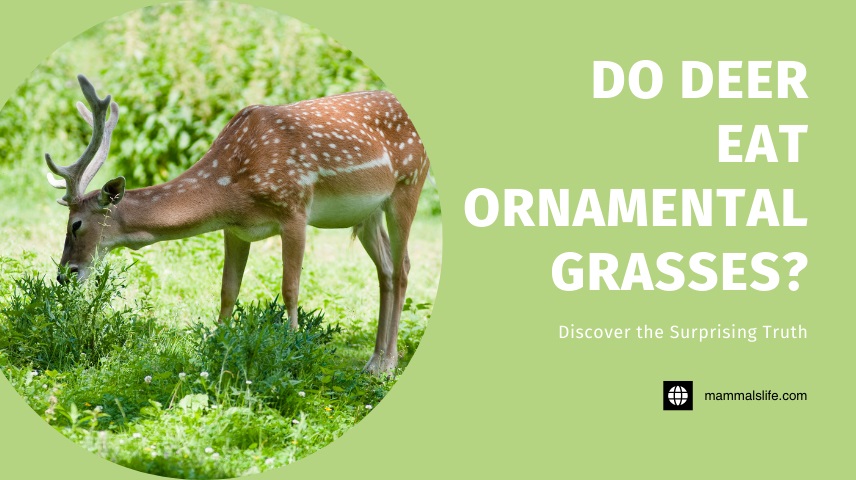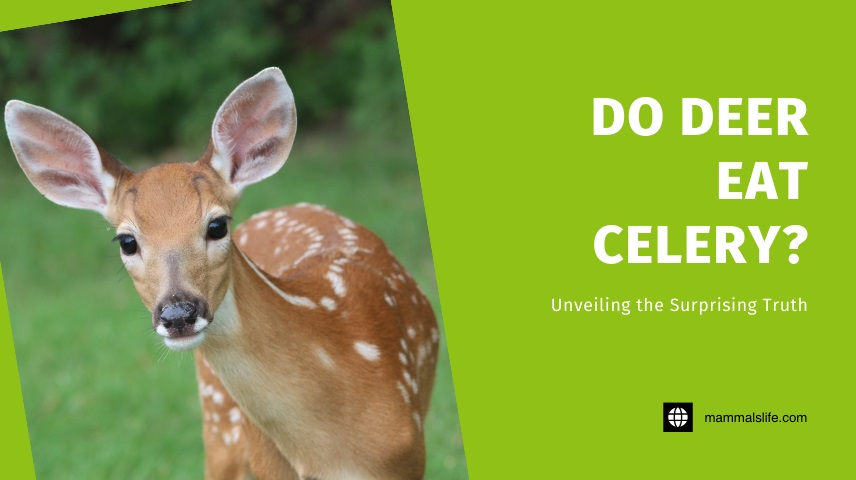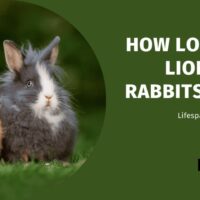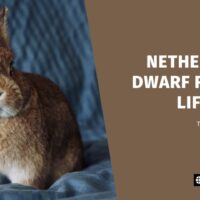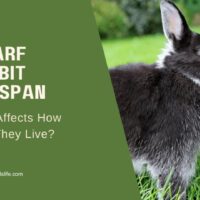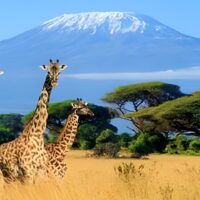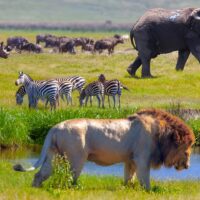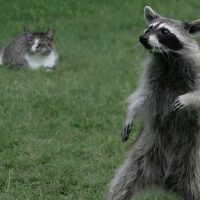Deer are fascinating creatures known for their grace and adaptability. As herbivores, their diet primarily consists of a variety of plant materials, which can vary significantly depending on the season and availability. A common question that arises, especially among farmers and wildlife enthusiasts, is whether deer eat potatoes. Understanding the dietary habits of deer is crucial for effective wildlife management and mitigating agricultural damage. This article delves into the dietary preferences of deer, their nutritional needs, and the circumstances under which they might consume potatoes.
Deer Dietary Habits
General Diet
Deer are opportunistic feeders with a diet that includes a wide range of plant materials. Their primary food sources can be categorized into four main groups:
- Browse: Woody plant material such as leaves, twigs, and shoots from shrubs and trees.
- Forbs: Broad-leaved herbaceous plants, which are particularly important during the growing season.
- Mast: Fruits and nuts, including acorns, which are crucial during the fall and winter months.
- Grasses: Although less preferred, grasses are consumed when other food sources are scarce.
The availability of these food sources changes with the seasons. In spring and summer, deer primarily feed on forbs and browse. In fall, they shift to mast, and in winter, they rely more on woody browse due to the scarcity of other food sources.
Nutritional Needs
Deer have specific nutritional requirements that drive their food choices. They need a diet rich in protein, energy, and minerals to support their growth, reproduction, and overall health. Protein is particularly important for antler growth in males and milk production in females. Energy, derived from carbohydrates and fats, is essential for maintaining body condition, especially during the winter months when food is scarce. Minerals such as calcium and phosphorus are crucial for bone development and metabolic processes.
Read More – Do Deer Eat Sweet Potatoes? Insights from Wildlife Experts
Do Deer Eat Potatoes?
Potatoes in Deer Diet
While potatoes are not a natural part of a deer’s diet, they may consume them under certain circumstances. Deer are known to eat a wide variety of plants, and when their preferred food sources are limited, they might turn to less typical options like potatoes. Factors that can lead deer to eat potatoes include:
- Scarcity of Preferred Food Sources: During periods of drought or harsh winters, when natural food is scarce, deer may resort to eating crops like potatoes.
- Environmental Conditions: Habitat changes due to human activity or natural events can force deer to explore new food sources.
Nutritional Value and Risks
Potatoes offer some nutritional benefits to deer, including carbohydrates and vitamins. However, they are not an ideal food source due to their low protein content. Additionally, potatoes can pose health risks to deer:
- Digestive Issues: Deer have a specialized digestive system adapted to digest fibrous plant material. Potatoes, being starchy, can cause digestive upset if consumed in large quantities.
- Toxicity: Green potatoes and potato sprouts contain solanine, a toxic compound that can be harmful to deer if ingested in significant amounts.
Impact on Agriculture
Crop Damage
Deer foraging on potato crops can lead to significant agricultural losses. Potatoes are a valuable crop, and deer feeding on them can result in reduced yields and economic hardship for farmers. The extent of the damage can vary depending on the deer population density and the availability of other food sources.
Human-Deer Conflicts
The consumption of potato crops by deer often leads to conflicts between farmers and wildlife. Farmers may take various measures to protect their crops, such as installing fences, using repellents, or employing hunting and culling strategies. These measures, while effective to some extent, can have ecological consequences, such as disrupting local wildlife populations and altering habitat dynamics.
Adaptability and Foraging Behavior
Dietary Flexibility
Deer are highly adaptable animals, capable of adjusting their diet based on food availability. This dietary flexibility is a key factor in their survival, allowing them to thrive in diverse environments. During food shortages, deer may consume a wide range of non-preferred foods, including crops like potatoes.
Ecological Impact
Deer play a significant role in their ecosystems through their foraging behavior. They contribute to seed dispersal and influence plant community dynamics. However, their consumption of non-traditional foods like potatoes can have mixed ecological effects. While it may help deer survive during tough times, it can also lead to overbrowsing and habitat degradation.
FAQs
1. Do deer eat potatoes?
Yes, deer may eat potatoes, especially when their preferred food sources are scarce. However, potatoes are not a natural part of their diet and can pose health risks if consumed in large quantities.
2. Why might deer eat potatoes?
Deer might eat potatoes due to scarcity of their preferred food sources, such as during periods of drought, harsh winters, or habitat changes. In such situations, they may turn to crops like potatoes to meet their nutritional needs.
3. Are potatoes nutritious for deer?
Potatoes provide some nutritional benefits, such as carbohydrates and vitamins, but they are low in protein, which is essential for deer. Additionally, green potatoes and potato sprouts contain solanine, a toxic compound that can be harmful to deer.
4. How can farmers protect their potato crops from deer?
Farmers can protect their potato crops from deer by using various measures, such as installing fences, applying deer repellents, and employing hunting or culling strategies. These methods can help reduce crop damage and economic losses.
5. What impact does deer foraging on potatoes have on agriculture?
Deer foraging on potato crops can lead to significant agricultural losses, reducing yields and causing economic hardship for farmers. This can also lead to conflicts between farmers and wildlife, necessitating measures to protect crops while considering ecological consequences.
Conclusion
While deer do not typically eat potatoes, they may do so under certain circumstances, such as when preferred food sources are scarce. Understanding the dietary habits of deer is essential for effective wildlife management and mitigating agricultural damage. By recognizing the factors that influence deer feeding behavior, we can develop strategies to balance the needs of wildlife with those of agriculture, ensuring a harmonious coexistence.

